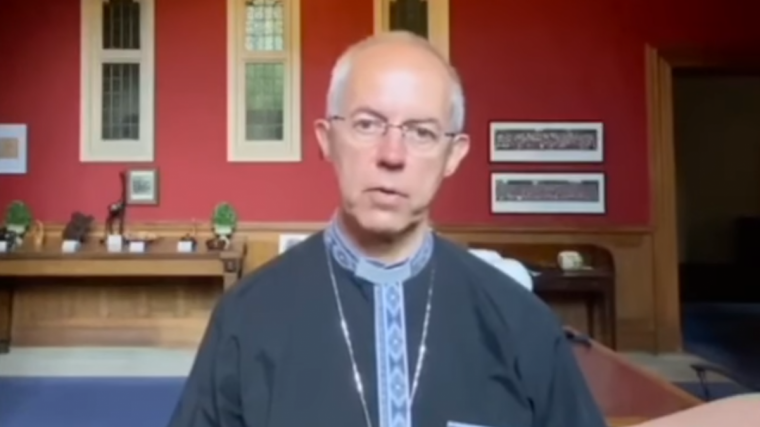Church of England must set its 'house in order' when it comes to racism

The Archbishop of Canterbury has said that the Church of England must continue to repent and take action to address its own failings on racism.
The call comes after weeks of Black Lives Matter protests around the world following the death of George Floyd in Minneapolis last month.
Archbishop Justin Welby said the extent of racism in the world today was "horrifying" and that he wanted to acknowledge that he himself came "from a place of privilege and power as a white person in this country".
Speaking in a Facebook video, he said that the Church of England was called to "acknowledge our own historic errors and failings" and set its "house in order".
"I'm struck by the events of the last few days, again and again and again," the Archbishop said.
"And I've been listening to those who have been talking about it from within their own experience of injustice as people of colour in this country.
"It's horrifying and yet I'm aware too that the Church has its own failings. And I come back to the fact that in the New Testament Jesus says be angry about injustice, repent of injustice - that means go the other way, take action against injustice.
"How that action is taken will vary from time to time and place to place. It must never involve the creation of more injustice, by seeking to damage other people."
He added: "But I feel within me, again today, that great call of Jesus that we are as a Church to be those who set our own house in order and who acknowledge our own historic errors and failings.
"As a person I acknowledge that I come from privilege and a place of power as a white person in this country, and then we take action."
His comments follow an apology for historic racism in the Church of England, particularly towards the Windrush generation, at the February meeting of its parliamentary body, General Synod.
At that meeting, Synod passed a motion that offers a "lament, on behalf of Christ's Church, and apologises for, the conscious and unconscious racism experienced by countless black, Asian and minority ethnic (BAME) Anglicans in 1948 and subsequent years, when seeking to find a spiritual home in their local Church of England parish churches, the memory of which is still painful to committed Anglicans who, in spite of this racism from clergy and others, have remained faithful to the Church of England and their Anglican heritage".











